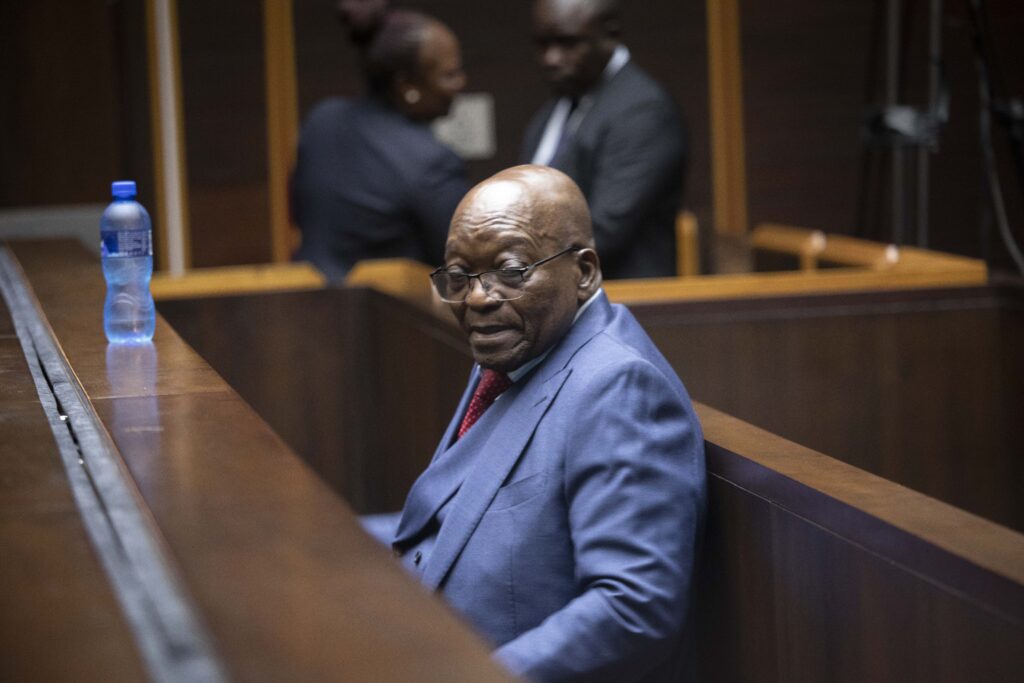As discussions regarding the potential return of former President Jacob Zuma to jail intensify, speculation has emerged over the possibility of President Cyril Ramaphosa granting him a Presidential pardon. The former president was sentenced to 15 months behind bars by the Constitutional Court for being in contempt of the court in 2021. This week the apex court dismissed a bid to overturn the Supreme Court of Appeal’s ruling on Jacob Zuma’s release on medical parole and left it to Correctional Services to decide whether he needs to return to jail.
One aspect that is being debated is whether such a pardon could help prevent a recurrence of the unrest witnessed in July 2021. However, the likelihood of such a scenario and its impact remain uncertain, as various factors come into play.
President Ramaphosa has consistently emphasised his commitment to upholding the rule of law and ensuring accountability for all individuals, regardless of their position. While his administration aims to address the underlying issues that contribute to social unrest, any potential decision regarding a Presidential pardon for Zuma would need to be carefully considered within the framework of justice and national stability.
One argument put forth by Economic Freedom Fighters (EFF) leader Julius Malema is that a Presidential pardon for Zuma could potentially help alleviate tensions and avoid a repeat of the 2021 July unrest.
Malema said the country needs to do all it can to avoid a repeat of those events.
“The president’s hands are not tied and that’s what we want to remind him of.
“We have reached a point where we must choose peace over all these types of things that we are talking about. To say no one is above the law and all of that… Zuma has served – it’s enough.”
Other advocates suggest that granting a pardon could contribute to a sense of closure, reconciliation, and national healing, redirecting the focus toward addressing socio-economic challenges rather than dwelling on past controversies.
However, critics of this viewpoint caution against the potential consequences of a pardon, asserting that it could be perceived as undermining the rule of law and setting a precedent that some individuals are exempt from accountability. They argue that true stability can only be achieved through adherence to legal processes and ensuring that all individuals, regardless of their stature, are subject to the consequences of their actions.
The events of the July 2021 unrest highlighted deep-seated socio-economic grievances, inequality, and frustration within society. Addressing these underlying issues requires a comprehensive and multi-faceted approach, encompassing economic reforms, social programs, and inclusive governance. While a Presidential pardon may hold symbolic significance, it is unlikely to address the root causes of societal unrest in isolation.
President Ramaphosa’s decision on a potential pardon for Zuma would undoubtedly be influenced by a range of considerations, including the recommendations of the Commissioner of Correctional Services, legal advice, public opinion, and the potential impact on national stability. Balancing these factors is crucial in charting a path that both upholds justice and fosters social cohesion.
As the nation grapples with the potential ramifications of a Presidential pardon for Jacob Zuma, the lessons from the 2021 July unrest loom large. The government’s priority must be to address the systemic issues that contribute to social discontent, inequality, and frustration. Long-term stability and reconciliation can only be achieved through a holistic approach that combines justice, socio-economic reforms, and inclusive governance.
While speculation continues regarding the possibility of a Presidential pardon for Zuma and its potential role in avoiding a recurrence of unrest, the nation awaits further developments and the decisions of President Cyril Ramaphosa. The outcome will shape the future course of justice, accountability, and the quest for lasting stability in South Africa.
